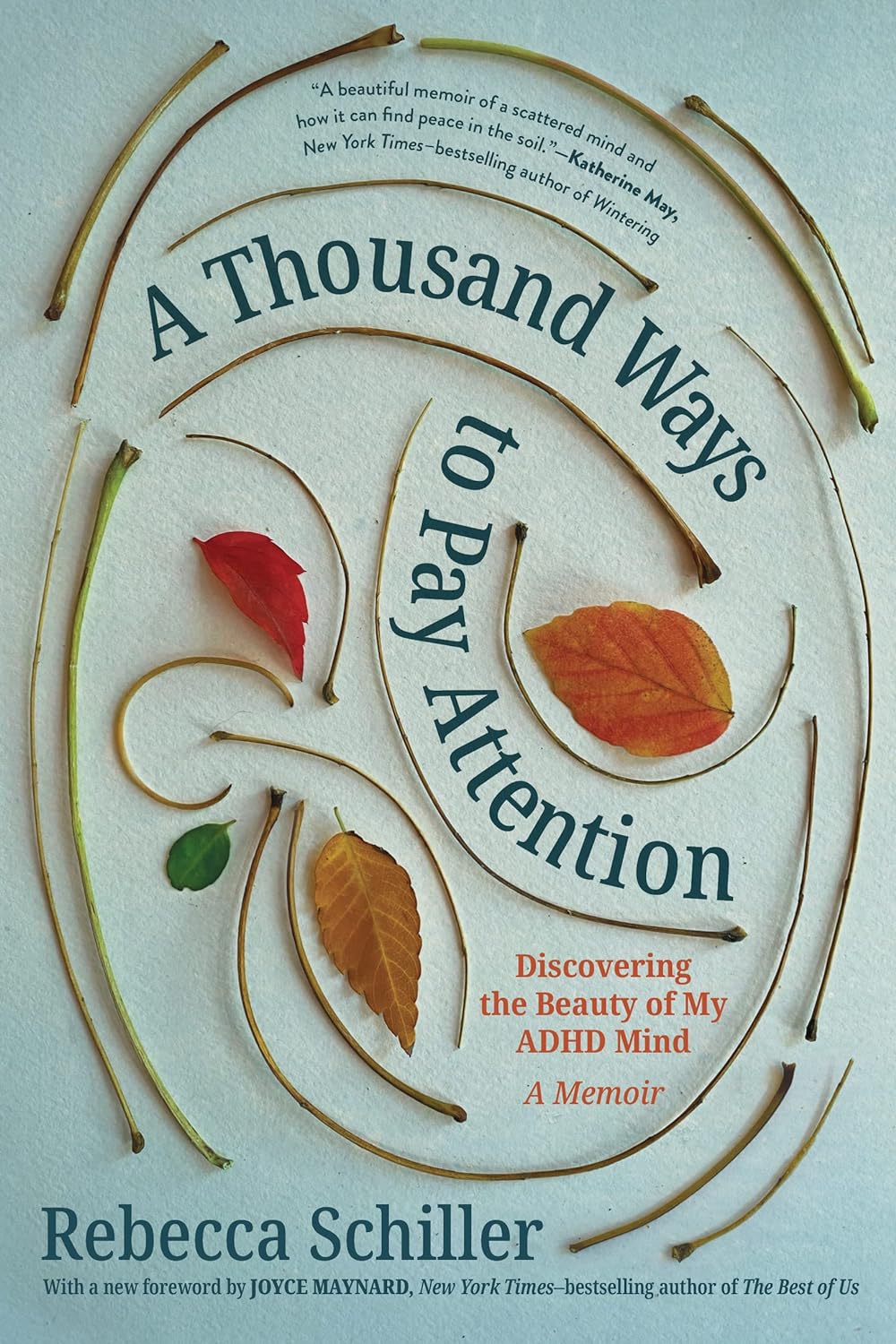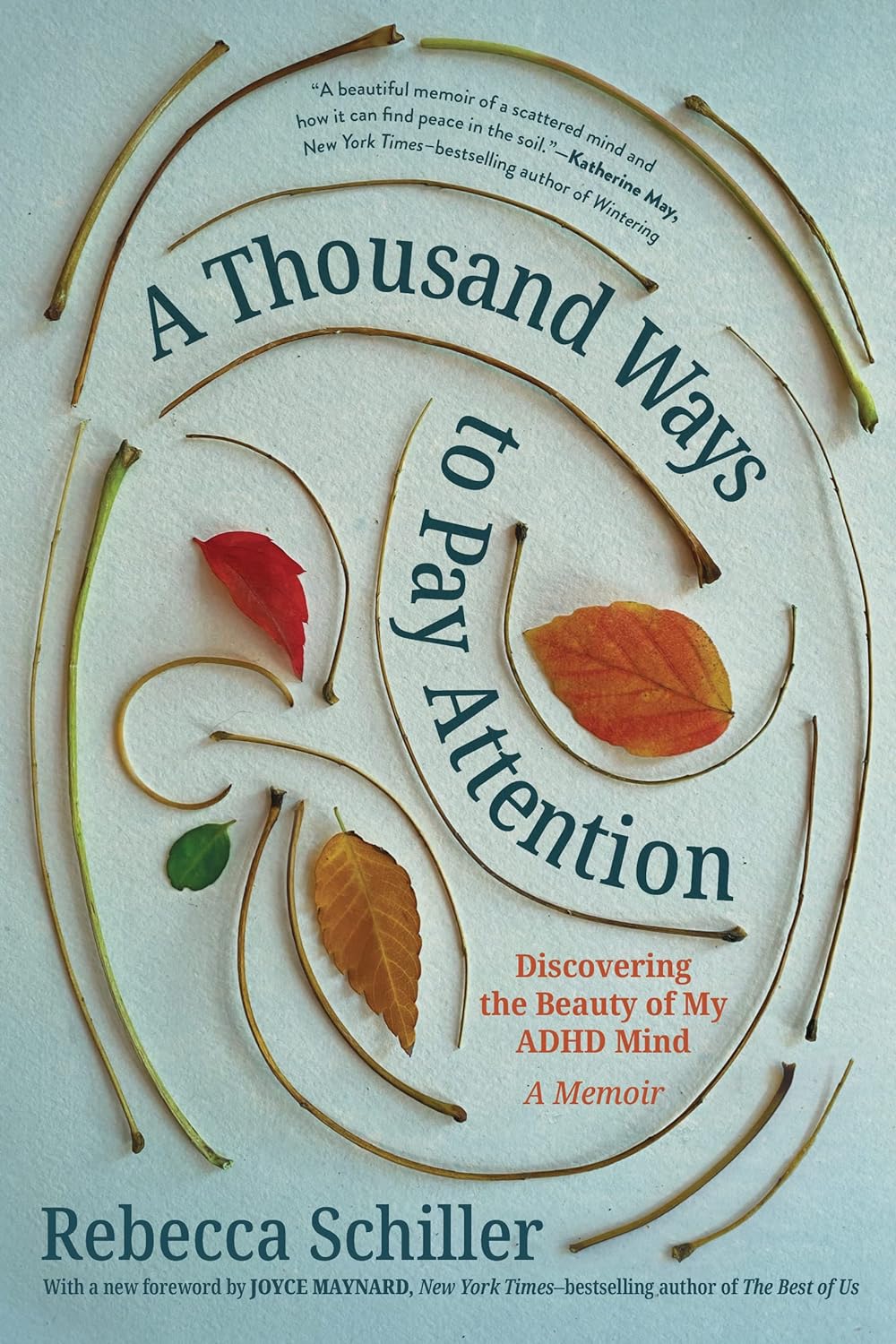Good E-Books
Thousand Ways to Pay Attention
Thousand Ways to Pay Attention
Regular price
$2.99 USD
Regular price
Sale price
$2.99 USD
Unit price
per
Receive the download link once purchase complete and via e-mail
Couldn't load pickup availability
In this “exquisite and probing narrative” (Publishers Weekly) of life on her small farm in the year leading up to a surprising diagnosis of severe ADHD, Rebecca Schiller pens a vivid rallying cry for anyone wondering if different doesn’t have to mean broken
It should have been Rebecca Schiller’s dream come true: moving her young family to the English countryside to raise goats and coax their own fruit and vegetables from the land. But, as she writes: The summer of striding out toward a life of open fields and sacks of corn, I brought a confused black hole of something pernicious but not yet acknowledged along for the ride.
Rebecca’s health begins to crumble, with bewildering symptoms: frequent falls, uncontrollable rages, and mysterious lapses in memory. As she fights to be seen by a succession of specialists, her fledgling homestead—and her family—hang by increasingly tenuous threads. And when her diagnosis finally comes, it is utterly unexpected: severe ADHD.
In her scramble for answers, Rebecca’s consciousness alternately sears with pinpoint focus and spirals with connections. Childhood memories resurface with new meaning, and her daily life entwines with the history of intrepid women who tended this land before her. Her family weathers their growing pains where generations of acorns have fallen to rise again as trees, where ancient wolves and lynx once stalked the shadows.
Written in unsparing, luminous prose, this is an all-absorbing memoir of one woman’s newfound neurodivergence—and a clarion call to overturn the narrative that says minds are either normal and good or different and broken.
Publisher's Note: A different version of this book has been published under the title Earthed in the United Kingdom.
View full details
It should have been Rebecca Schiller’s dream come true: moving her young family to the English countryside to raise goats and coax their own fruit and vegetables from the land. But, as she writes: The summer of striding out toward a life of open fields and sacks of corn, I brought a confused black hole of something pernicious but not yet acknowledged along for the ride.
Rebecca’s health begins to crumble, with bewildering symptoms: frequent falls, uncontrollable rages, and mysterious lapses in memory. As she fights to be seen by a succession of specialists, her fledgling homestead—and her family—hang by increasingly tenuous threads. And when her diagnosis finally comes, it is utterly unexpected: severe ADHD.
In her scramble for answers, Rebecca’s consciousness alternately sears with pinpoint focus and spirals with connections. Childhood memories resurface with new meaning, and her daily life entwines with the history of intrepid women who tended this land before her. Her family weathers their growing pains where generations of acorns have fallen to rise again as trees, where ancient wolves and lynx once stalked the shadows.
Written in unsparing, luminous prose, this is an all-absorbing memoir of one woman’s newfound neurodivergence—and a clarion call to overturn the narrative that says minds are either normal and good or different and broken.
Publisher's Note: A different version of this book has been published under the title Earthed in the United Kingdom.


